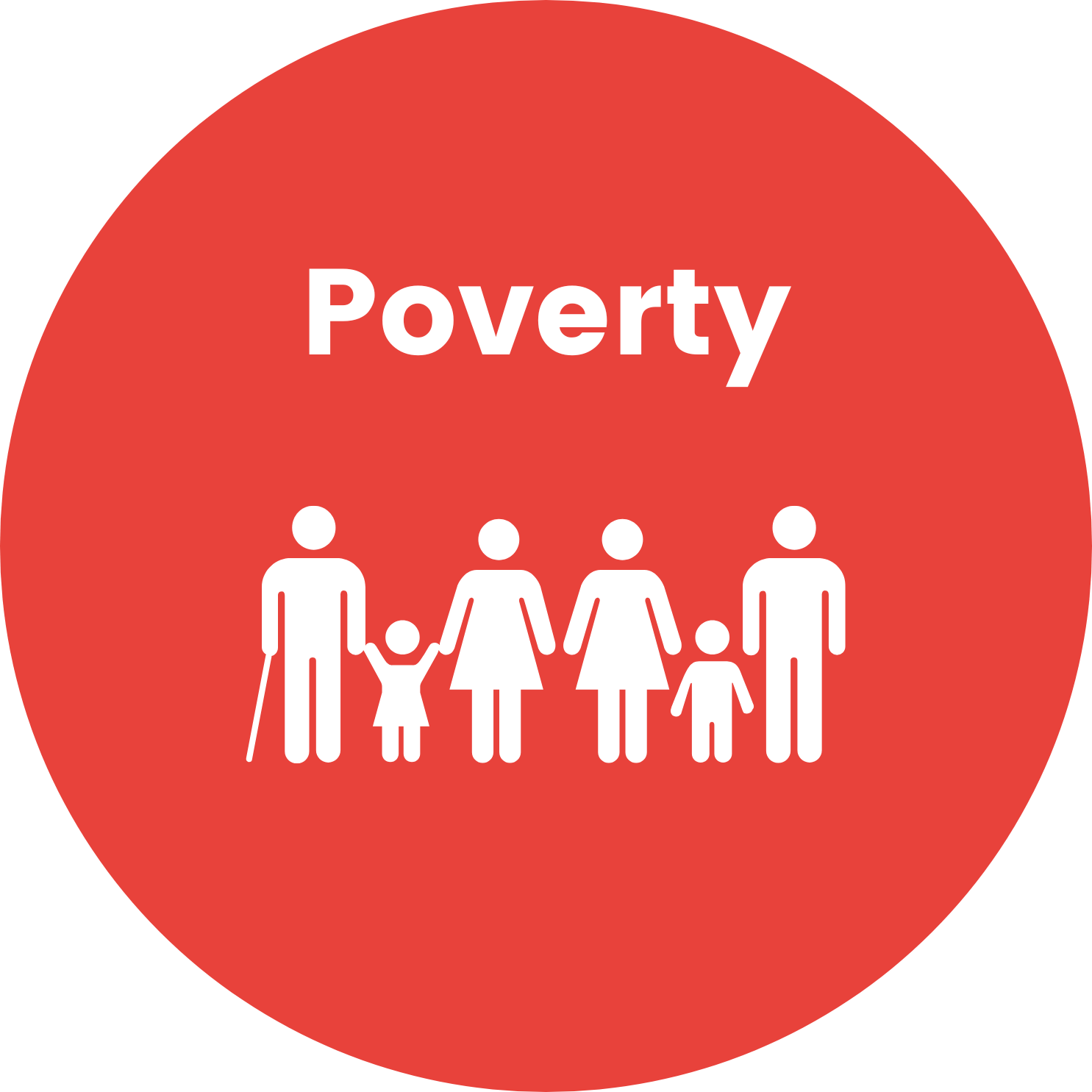Poverty

No matter where they are, children who grow up impoverished suffer from poor living standards, develop fewer skills for the workforce, and earn lower wages as adults. Only a limited number of Governments have set the elimination of child poverty as a national priority.
Poverty Projects
Immunisation is widely perceived as gender-neutral, yet in many countries, there are distinct gender barriers at both household and community levels. This project aims to strengthen the availability of timely and granular data to identify gender-related barriers to immunisation better and inform targeted pro-equity strategies.
Scotland must #KeepThePromise it made to children and families - a cohesive picture of all the data on processes and systems that directly and indirectly impact children and families will help Scotland understand how to do that.
The places where our children and young people grow up in are extremely diverse and can greatly influence the outcomes of children and families across Scotland.
This project will focus on mapping children’s physical accessibility to key services, such as health clinics and schools, in selected countries. We want to know whether the distance and time it takes to travel to a key service could help explain a child’s lack of access to it.
Poverty Outputs
An extended dataset of individual travel time maps for the 54 countries across the African continent and its island states, generated with the precision of a 100-meter resolution.
This case study explains how the Data for Children Collaborative Facilitated a Collaborative Solution for UNICEF to Support them in Exploring Ways to Better Understand Access to Child Services.
This case study shows how the Data for Children Collaborative helped The Promise Scotland build the right team to map diverse care system data.
This case study explains how the Data for Children Collaborative helped the Northern Alliance uncover a deeper understanding of the mechanisms by which educational attainment can be negatively affected by poverty, frame the conversation and layout logical project steps.
In this presentation, Dr Watmough, the project’s principal investigator, details how the team generated novel, more sustainable maps with a five-fold increased resolution for the entire continent of Africa and its island states, including 54 Countries
A report conducting an investigation into how to collect and map data on 'what matters' to Children and Families in Scotland.
This report is an output from our Poverty team, and it describes the work conducted for the Child Poverty and Access to Services (CPAS) project. The project's ultimate aim was to determine if geographic access to health centres correlated with multidimensional child poverty.
A paper presenting the data and methods used to create more realistic estimates of travel times to health facilities in Uganda, Tanzania, Zimbabwe and Mozambique.
This report by CivicDataLab captures the work undertaken with stakeholders to identify the shared knowledge gap across local authorities, identify the most appropriate indicators and map the suitable data sources that can be used at the school catchment aggregation.
As part of our Northern Alliance project, this report by the Fraser of Allander Institute looks across a wide range of data, some of which are rural specific, to scope out alternative evidence that could be used by schools and local authorities to identify issues that may be impacting attainment.
As part of our project: Understanding Poverty and Attainment Across the Northern Alliance Region, The University of Strathclyde’s Fraser of Allander Institute completed a statistical analysis paper of the educational mobility of primary schools across Scotland.
A collection of travel time maps to various health services produced as part of our Child Poverty Access to Services project.














